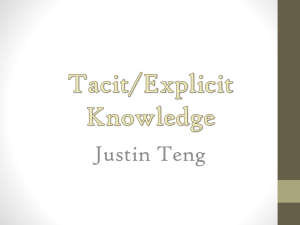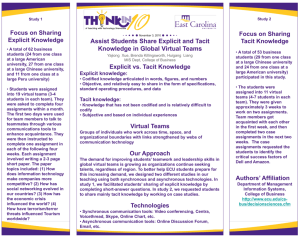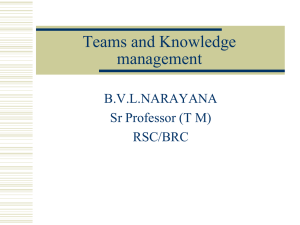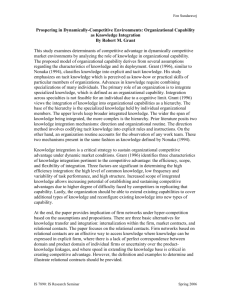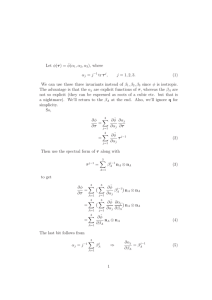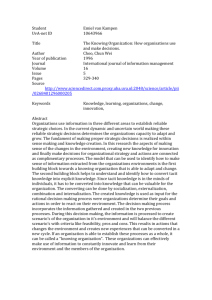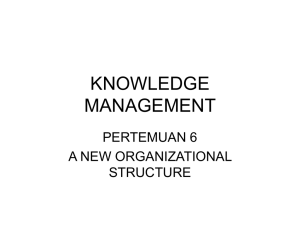Nonaka I. (1994) A Dynamic Theory of Organizational Knowledge Creation
advertisement
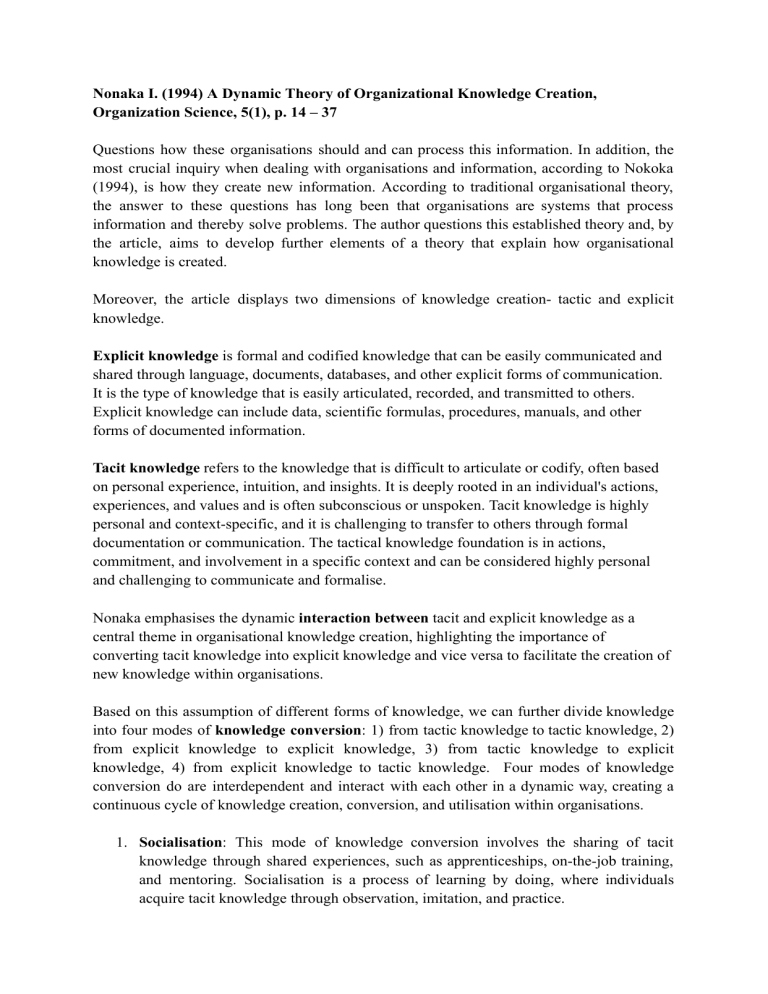
Nonaka I. (1994) A Dynamic Theory of Organizational Knowledge Creation, Organization Science, 5(1), p. 14 – 37 Questions how these organisations should and can process this information. In addition, the most crucial inquiry when dealing with organisations and information, according to Nokoka (1994), is how they create new information. According to traditional organisational theory, the answer to these questions has long been that organisations are systems that process information and thereby solve problems. The author questions this established theory and, by the article, aims to develop further elements of a theory that explain how organisational knowledge is created. Moreover, the article displays two dimensions of knowledge creation- tactic and explicit knowledge. Explicit knowledge is formal and codified knowledge that can be easily communicated and shared through language, documents, databases, and other explicit forms of communication. It is the type of knowledge that is easily articulated, recorded, and transmitted to others. Explicit knowledge can include data, scientific formulas, procedures, manuals, and other forms of documented information. Tacit knowledge refers to the knowledge that is difficult to articulate or codify, often based on personal experience, intuition, and insights. It is deeply rooted in an individual's actions, experiences, and values and is often subconscious or unspoken. Tacit knowledge is highly personal and context-specific, and it is challenging to transfer to others through formal documentation or communication. The tactical knowledge foundation is in actions, commitment, and involvement in a specific context and can be considered highly personal and challenging to communicate and formalise. Nonaka emphasises the dynamic interaction between tacit and explicit knowledge as a central theme in organisational knowledge creation, highlighting the importance of converting tacit knowledge into explicit knowledge and vice versa to facilitate the creation of new knowledge within organisations. Based on this assumption of different forms of knowledge, we can further divide knowledge into four modes of knowledge conversion: 1) from tactic knowledge to tactic knowledge, 2) from explicit knowledge to explicit knowledge, 3) from tactic knowledge to explicit knowledge, 4) from explicit knowledge to tactic knowledge. Four modes of knowledge conversion do are interdependent and interact with each other in a dynamic way, creating a continuous cycle of knowledge creation, conversion, and utilisation within organisations. 1. Socialisation: This mode of knowledge conversion involves the sharing of tacit knowledge through shared experiences, such as apprenticeships, on-the-job training, and mentoring. Socialisation is a process of learning by doing, where individuals acquire tacit knowledge through observation, imitation, and practice. 2. Externalisation: This mode of knowledge conversion involves the articulation of tacit knowledge into explicit knowledge, such as through the use of metaphors, analogies, and models. Externalisation is a process of making tacit knowledge explicit and shareable, allowing it to be communicated and transferred to others. 3. Combination: This mode of knowledge conversion involves the reconfiguration of existing explicit knowledge through the sorting, adding, recategorising, and recontextualising of information. Combination is a process of synthesising different bodies of explicit knowledge to create new knowledge. 4. Internalisation: This mode of knowledge conversion involves individuals' learning process, where explicit knowledge is transformed into tacit knowledge through action and reflection. Internalisation is a process of making explicit knowledge personal and embodied, allowing it to be integrated into an individual's tacit knowledge base. The joint creation of knowledge on all levels is essential to create this synergy between individuals, organisations, and societies. According to the author, organisational learning can thereby be considered identical to humanistic knowledge, grander than the limitations possessed by economic rationality. Nokona further sheds light on the importance of organisations mobilising individual expertise by creating the space for a “spiral of knowledge” through socialisation, externalisation, combination, and internationalisation.
